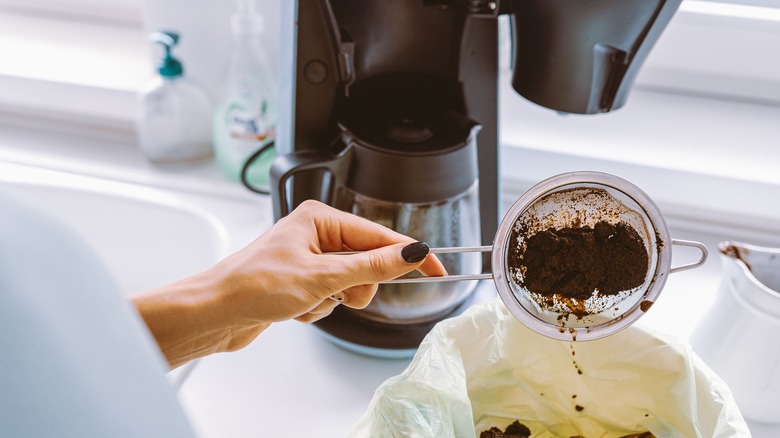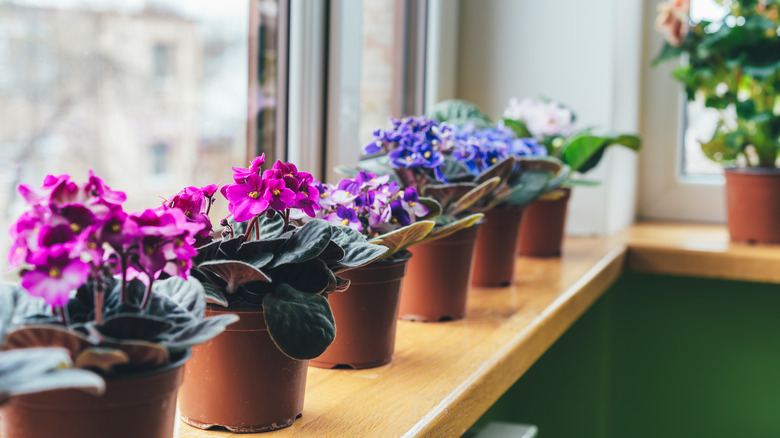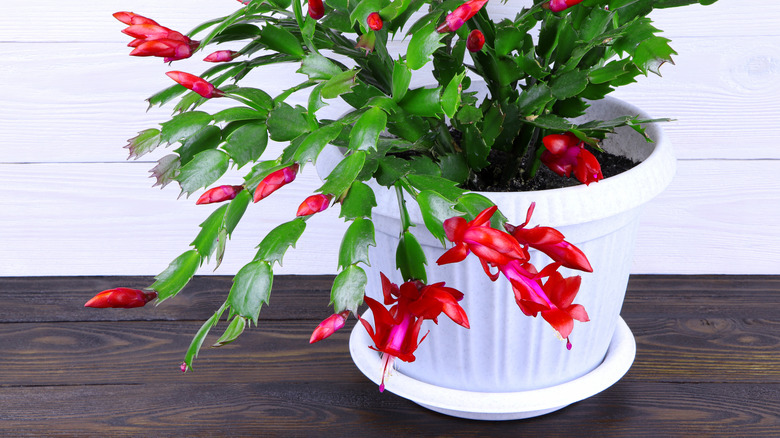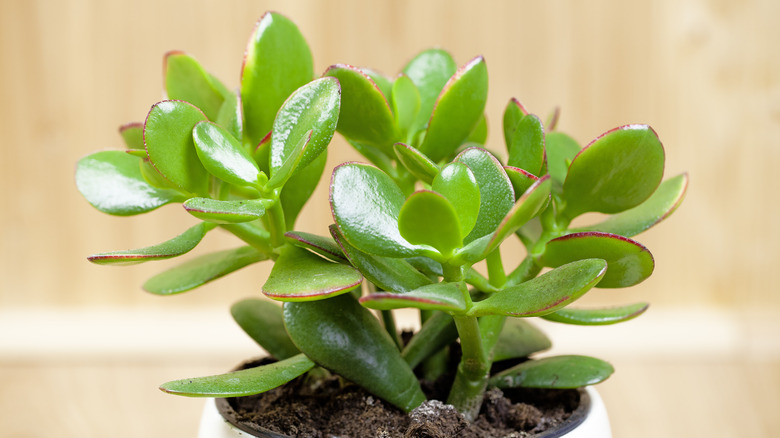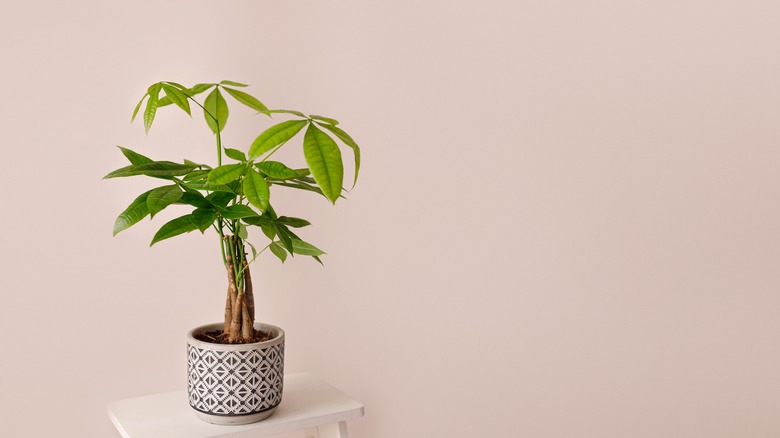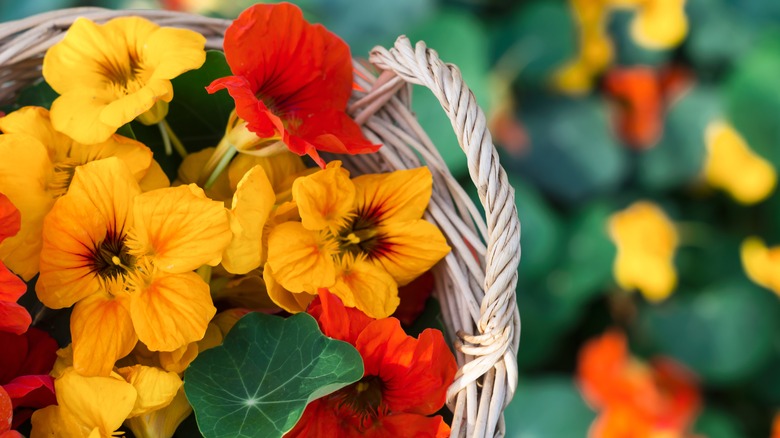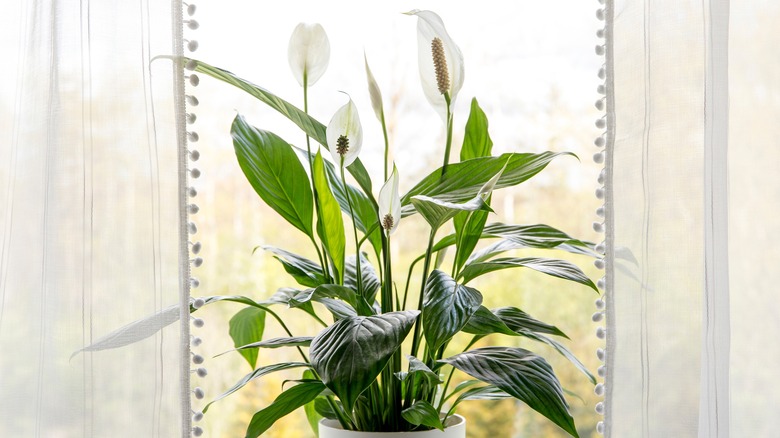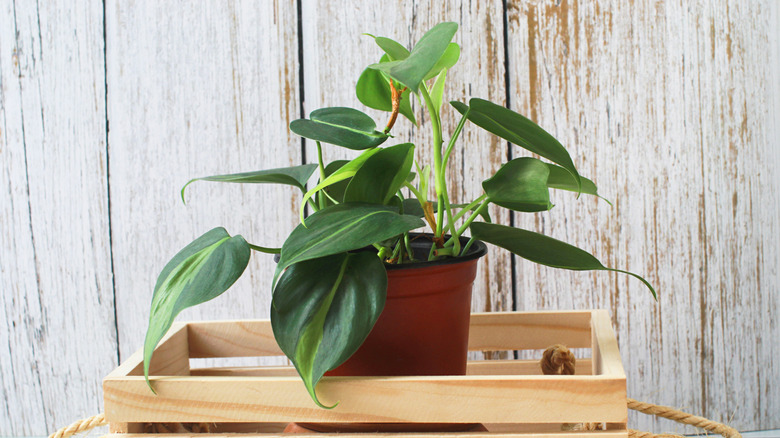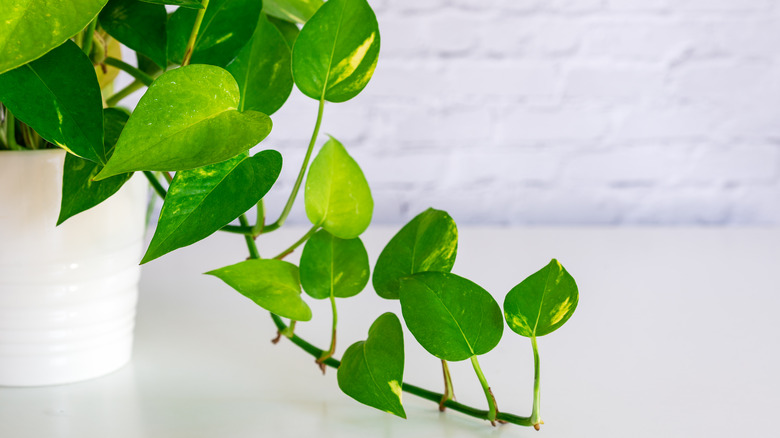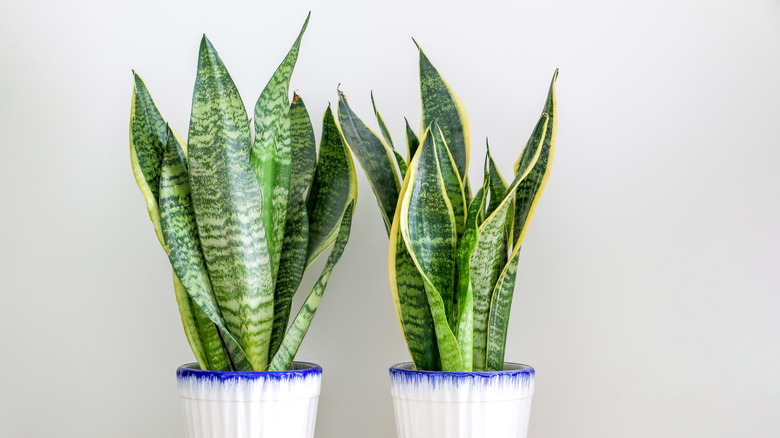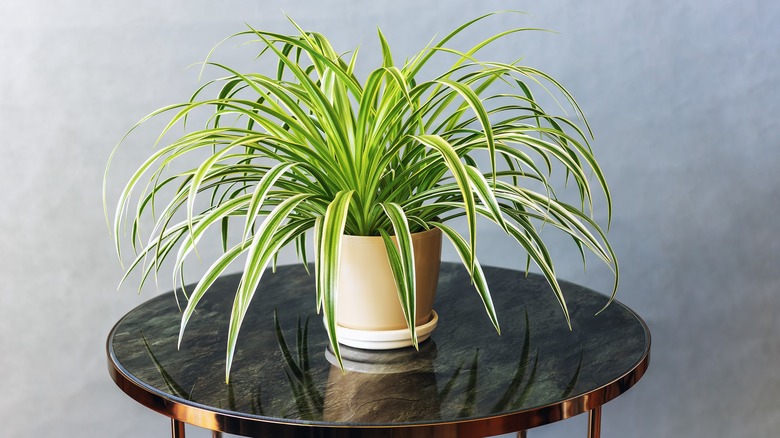Give These 10 Indoor Houseplants Coffee Grounds To Help Them Thrive
It's always great when you can find a way to reuse something destined for the trash bin. Coffee grounds are a case in point. Whether you save your own or ask your local coffee shop to fill a jar for you, used coffee grounds can indeed be used to fertilize many different types of houseplants, including African violets, nasturtiums, jade, and spider plants, just to name a few.
Before you use them in this way, however, you'll want to dry them to keep mold from growing in the grounds, which can be detrimental to your plants. Air dry coffee grounds by spreading them out on a baking pan and letting them air dry overnight, stirring several times to quicken the pace. Alternately, you can put them in an oven heated to 250 degrees Fahrenheit for about 20 minutes, stirring a few times until they're completely dry. The best way to store used coffee grounds after drying them is in an airtight container made of glass or plastic deemed safe for storing food. This will keep them free of moisture and ready to use.
There are some plants in your home that don't like coffee grounds as fertilizer, however. They may alter the pH level of the soil or keep it moister than some plants prefer. For instance, you should think twice before using coffee grounds to feed orchids in your home. There are plenty of other houseplants that could benefit from coffee grounds, though, and we've got 10 of them for you to consider.
1. African violets
African violets have a reputation for being a little picky when it comes to the right environment to keep them blooming, so you might be wondering if it's okay to add coffee grounds to their soil. The answer is yes, but you'll want to do so in moderation. African violets like the nitrogen and mild acidity coffee grounds provide their leaves but don't get carried away. Adding a sprinkle of coffee grounds to the top of the potting soil every other month should be sufficient if you're not already using other types of African violet fertilizers.
2. Christmas cactus
One of the great things about Christmas cactus is that it's a fairly easy plant to grow. That, coupled with the fact that it will bloom for weeks when most other flowers are dormant in the winter, makes it a welcome addition to many houseplant collections. These plants don't have to be fertilized with coffee grounds to thrive, but they do tend to enjoy the added potassium and nitrogen they impart while blooming. A little goes a long way, so go easy when adding coffee grounds to the soil of a Christmas cactus for the best results.
3. Jade plant
These slow-growing plants will live for decades with proper nurturing. They require more water during the spring and summer growing season and less as they go dormant in the fall and winter. Another way to nurture them is using coffee grounds as a fertilizer as long as you do it right. Simply spread a few grounds on the soil around the base of the plant during the growth period about once a month. Go easy, though, since you don't want the coffee grounds to hold in too much moisture, leading to root rot.
4. Money tree
Money trees only need to be watered when the soil is thoroughly dry. Since coffee grounds tend to hold in moisture, common sense dictates sprinkling them on the surface of the soil very sparingly when utilizing them as fertilizer. You also might decide to try making a compost tea with some of the used coffee grounds you dried to give your tree the nutrients it needs. Simply soak 2 cups of used coffee grounds in a 5 gallon bucket of water overnight, strain them out, and then water your dry money tree as usual with the liquid.
5. Nasturtium
Can you grow colorful nasturtium as a houseplant? You bet! If you're into edible flowers, you already know that nasturtium blooms and leaves are not only filled with antioxidants, but they're also an excellent source of vitamin C. That's a great reason to grow them as houseplants in a sunny spot all year long. These plants don't require a lot of fertilizing in general, especially to get them to bloom. When encouraging foliage growth, however, you can indeed sprinkle coffee grounds on the soil since they like it on the acidic side.
6. Peace lily
These houseplants are known for their bright green foliage and exotic-looking white blooms. Their favorite locations provide lots of light without the heat of direct sunshine and soil that's damp but not overly wet. When it comes to coffee grounds, peace lilies enjoy the extra bit of acidity they add to the soil as well as all the minerals they impart. Sprinkling coffee grounds over the soil early in the summer provides nutrients for ample blooms. For the biggest advantage as an overall fertilizer, however, consider making compost tea using coffee grounds and watering with it occasionally.
7. Philodendron
Philodendrons are favorites among people who have a propensity to neglect houseplants because they don't need a lot of fussing over to grow quite readily. If you do want to give them a little tender loving care, using coffee grounds as a fertilizer is a great place to start. Simply sprinkle them on top of the soil and then water. Don't use too much; a handful is enough. Be sure to disperse them in an even layer over the soil. Applying coffee grounds once every four weeks during periods of growth is plenty.
8. Pothos
Since pothos, also called devil's ivy, is quite easy to grow, you might not think much about fertilizing it. Sprinkling some coffee grounds on top of the soil can be a great way to make sure your pothos remains healthy. Concerns arise when you add too much, though, since coffee grounds may make the soil a bit too acidic. You might decide to test the pH level of your soil before giving your pothos a sprinkling of coffee grounds, just to be safe. You can also consider watering pothos with compost tea made with coffee grounds.
9. Snake plant
Whether you call it a snake plant or mother-in-law's tongue, several different varieties are available as houseplants. They're popular with beginners since they require minimal care and can go long periods without water; basically, they're hard to kill. Because coffee grounds release nitrogen slowly, they're great for fertilizing snake plants. To use them for this purpose, scatter coffee grounds over the soil lightly yet evenly from time to time. Take care, since using too many coffee grounds can result in adverse pH changes to your potting mix or too much moisture being trapped in the soil.
10. Spider plant
Like other houseplants, spider plants help keep indoor air clean by absorbing chemicals. That's a great reason to have them around, but they're also easy to care for; moderate to bright sunlight and regular watering is all they need. If you have a spider plant plagued by insects, coffee grounds can be helpful in controlling those types of pests. Just sprinkle some on the soil and let them do their magic as a natural bug repellent. As a fertilizer, making a compost tea using coffee grounds will provide nutrients to help your spider plant thrive, too.
